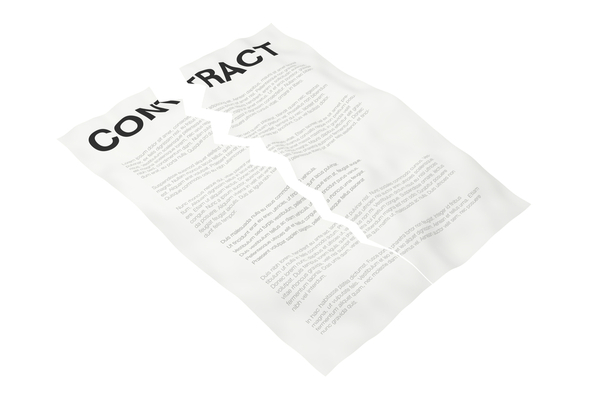
Contract Breaches Caused By COVID-19 and How “Force Majeure” Clauses Apply
The novel coronavirus COVID-19 has impacted the world in ways that did not seem possible just a short time ago, with business-as-usual grinding to a halt. Factory closings, event cancellations, conference postponements, transportation restrictions, and general concerns over the pandemic are causing major supply chain and labor disruptions. The current state of affairs is also raising questions about contract performance and the application of “force majeure” clauses.
Force majeure, translated from French as “superior force,” refers to a contractual provision that frees both parties from obligation in the event of circumstances beyond their control, such as a natural disaster or war. As the coronavirus continues to disrupt business — and as businesses struggle to satisfy contracts — the applicability of force majeure clauses is becoming a critical legal issue. The question of COVID-19 excusing parties from their contractual obligations may depend on the actual contract language, as well as local law.
Origins of the Force Majeure Clause
Force majeure clauses can be traced back to an English case decided in 1863. Taylor vs. Caldwell was a breach of contract dispute in which the defendant agreed to let the plaintiff rent a music hall and gardens for four days. After the contract was signed, but before the first event could take place, the venue was destroyed by accidental fire. The plaintiff sued the defendant for failing to rent out the music hall and breaching the contract, but the court ruled that the contract contained an implied condition that the venue was the foundation of the contract, and that without it, the contract was impossible to fulfill. Thus, the destruction of the hall, which was the fault of neither party, excused both parties.
The United States Supreme Court adopted the same rule of law twenty years later in a case (The Tornado) involving a ship that could not deliver freight because it caught fire before the voyage. Since the contract did not include a clause specific to this situation, SCOTUS applied the principle from Taylor vs. Caldwell. That is, because the contract depended on the ship being seaworthy, and because it was rendered unseaworthy, without the fault of either party, both parties were excused from performance.
American courts continue to apply this principle, but with certain modifications. A party relying on the defense of impossibility of performance must establish: (1) the unexpected occurrence of an intervening act; (2) the occurrence was of such a character that its non-occurrence was a basic assumption of the parties’ agreement; and (3) said occurrence made performance impracticable.
Coronavirus, Force Majeure, and Contract Enforceability
In regards to COVID-19 and contract nonperformance, if a contract doesn’t contain a force majeure clause, it could be implied under the impossibility doctrine described above, or the related frustration of purpose doctrine. For example, port shutdowns and transportation restrictions during the coronavirus outbreak could make it impossible for a party to perform their contractual obligations. Performance, however, must be truly impossible — not merely impractical or financially difficult.
If a contract does contain a force majeure clause, whether coronavirus is a qualifying event depends largely on contract specifics. For example, the contract could include language such as “epidemic,” “pandemic,” “disease,” “quarantine,” or “acts of government.” This is the case with the collective bargaining agreement between the National Basketball Association and its players. The agreement contains a force majeure clause that specifically references “epidemics” and could be invoked to reduce player compensation as the NBA season is suspended.
Contracts may not specifically mention epidemics, pandemics, and quarantines as force majeure events, but they could have a catch-all phrase (e.g., “any other circumstance beyond the control of the parties which they cannot overcome through reasonable and diligent efforts”) that is interpreted to capture coronavirus-related disruptions. Such an interpretation will likely vary significantly across jurisdictions depending on state laws. Force majeure provisions can also take on different characteristics based on the type of agreement and the industry involved.
Talk to an Experienced Breach of Contract Lawyer
The coronavirus pandemic has sowed uncertainty throughout Florida and the country. Our breach of contract lawyers understand that coronavirus affects stakeholders across the entire supply chain and employment landscape. To discuss the legal implications of COVID-19 for your business, schedule a free no-obligation case review.
In keeping with our philosophy of not charging upfront or hourly attorneys’ fees, the Business Trial Group is here to discuss any contract dispute you are having during this crisis. We will never charge you for a consultation and, if we are able to assist, you will owe us nothing unless and until we make a recovery for you.
Recent news




